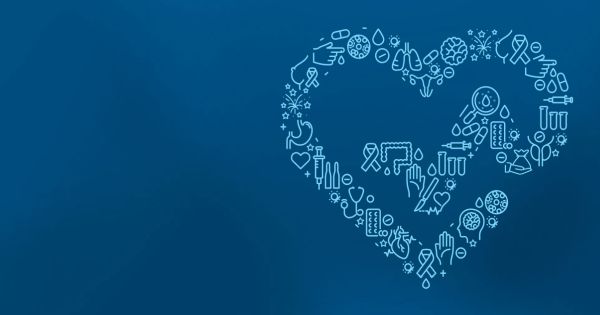More and more people in developed countries, and more and more young people, even infants, suffer from chronic intestinal inflammation, also known as Inflammatory Bowel Diseases (IBD). There were over 56,000 patients with IBD in the Czech Republic in 2018. Thanks to highly innovative medicinal products, the quality of life for these patients has significantly improved and mortality has considerably decreased.
Diseases known as idiopathic or non-specific intestinal inflammation include Crohn's disease and ulcerative colitis. The word idiopathic means that their cause is unknown. These are chronic inflammatory (autoimmune) diseases with many intestinal and extra-intestinal symptoms. They occur in variously serious forms and can endanger patients’ lives or drastically aggravate the quality of their personal, social and professional lives.
Crohn's disease can affect almost the entire digestive tube, from the mouth to the very end of the colon. The main symptoms include abdominal pain and diarrhea with painful emptying. Ulcerative colitis affects the colon and rectum (the rectum is always affected), without any intercalated healthy segments. In the most severe cases, it can also affect the end of the small intestine. One of the most serious complications of IBD is the development of deep ulcers in the intestinal mucosa, which can lead (rarely) to the perforation of the intestine with all life-threatening consequences.
Patient mortality has diminished
There have been many different medicinal products and types of treatment, but none of them has been able to stabilize the disease in the long term. In the most severe cases, the affected part of the intestine was surgically removed. Biological treatment has made significant progress, enabling patients to lead a (nearly) normal life.
“In recent years, a whole range of new molecules have been marketed that help patients with idiopathic intestinal inflammation to significantly reduce the symptoms of the disease while avoiding many adverse effects, even when used for a long time. Proper treatment improves the quality of patients’ lives and mitigates or gets rid of the symptoms of the disease,” says Mgr. Lucie Laštíková from the patient organization Pacienti IBD, z.s.
Modern biologicals in most cases keep patients in long-term remission and with no health problems. Since patients receive innovative biological therapy in specialized centers, these expensive, yet highly innovative, medicinal products are sometimes referred to as centric treatment or centric medicinal products.
Patient treatment is less costly
Although the number of patients diagnosed with IBD has steadily increased, innovative medicinal products have reduced both the number and length of hospitalizations. With the introduction of biosimilars ("imitations" of original biologics), the treatment of IBD becomes less costly and thus more accessible to more patients.
“Only about 15% of IBD patients receive modern biological therapy in the Czech Republic, while in France and Germany it is almost 25%. Nevertheless, the availability of treatment in the Czech Republic has greatly increased. The number of treated patients is increasing more rapidly than the cost of their treatment. In addition, new generic drugs help to lower the unit cost of treatment,” says Mgr. Jakub Dvořáček, MHA, executive director of the Association of Innovative Pharmaceutical Industry.
Thus, the treatment becomes cheaper while the quality of patients’ lives improves. But pharmaceutical companies are coming up with the next generation of medicinal products that can help patients with the most severe forms of IBD.




